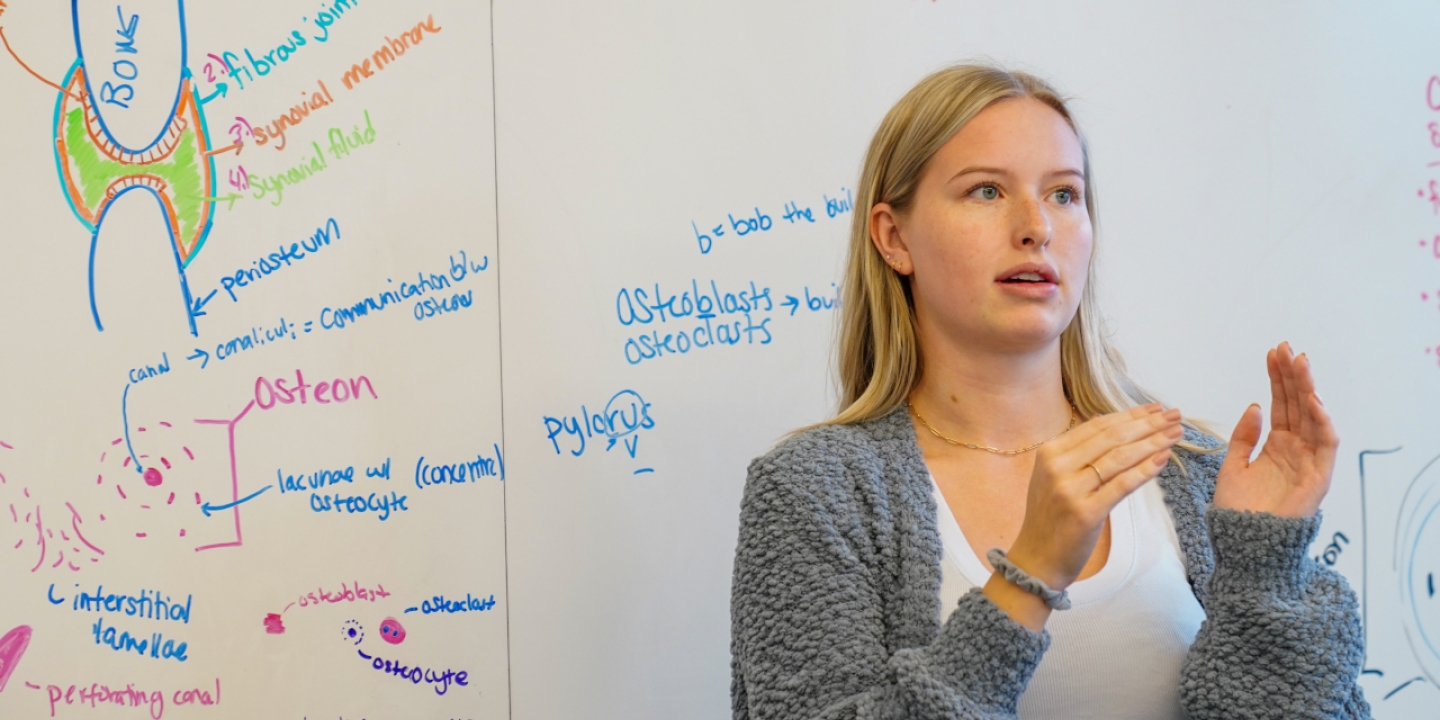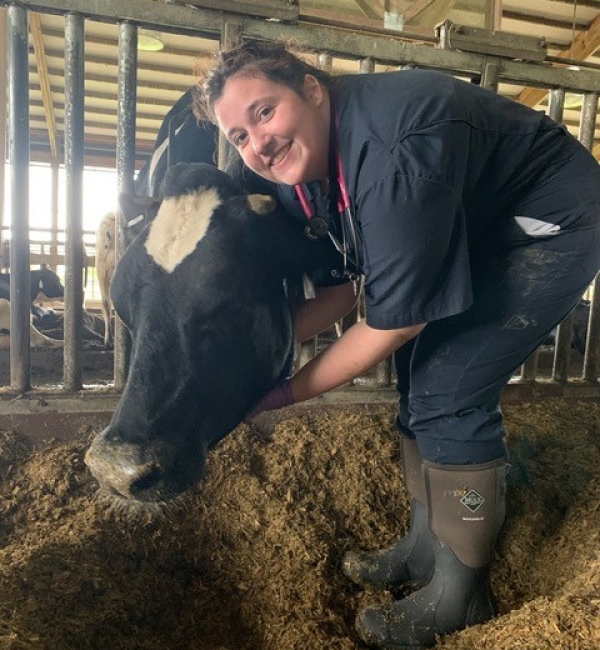Ashley, Class of 2026
When did you decide to pursue veterinary medicine?
I have known I wanted to be a veterinarian since I was about 8 years old. I have always had a passion for both animals and people. Time is the most valuable thing we have to offer, and I wanted to dedicate mine to helping others. Through my time in 4-H, I learned the beauty of agriculture and fell in love with the dairy industry, which set me on the path to pursuing a degree in veterinary medicine with the hopes of becoming a bovine practitioner.
What did you do to prepare for veterinary school?
There were a lot of things I did to prepare for veterinary school; however, the best thing I think you can do for yourself is to gain as much exposure to the profession as you can. You can do a million things with a veterinary degree, from small animals to public health, to equine, to research, and beyond. I think it’s important to seek out experiences where you can see what veterinary medicine looks like in practice! For example, I worked at a small animal clinic as a surgery assistant and did research on plants just to see if either of those interested me. I also used resources online to guide what classes I took to ensure I covered my bases in terms of completing all the prerequisites before applying. Lastly, I made connections with students currently in veterinary school, faculty, staff, etc. in order to bounce ideas off of them and ask for advice.
What advice do you have for high school or college students who are interested in becoming a veterinarian?
My biggest piece of advice is to stay true to yourself! Veterinary medicine is an absolutely phenomenal profession; however, you are a person first and a vet student/ pre-vet student/ veterinarian second. Getting into veterinary school is stressful, and it can feel like there is a lot of pressure for you to do the “right” things or join the “right” clubs. There is no right thing! If you want to join the glee club instead of the pre-vet club, do that! Do what you love, and try your hardest not to compare yourself to others. Don’t stress about how many hours you have or if you’ve done enough research. Although those things are important, veterinary schools want to see that you are a well-rounded person. I can confidently say that, as someone who spent less than 300 hours in a veterinary clinic and does not eat, sleep, or breathe veterinary medicine, you will be okay! You are still valid, and this profession welcomes you just the way you are.
Why did you choose Cornell and what do you enjoy most about the veterinary program?
As a first-generation college student, I really didn’t know a lot about different vet school programs or what I should be looking for. Since I was just a little kid, i would tell people I was going to grow up and go to Cornell’s veterinary school, so when it came time to apply, I decided at the last minute to apply to Cornell to honor that little girl's dream. I never anticipated getting accepted. A few weeks after I got accepted, my dad and I drove out here to visit (I'm originally from Ohio), and I just knew this was the place I was meant to be. The community, the resources, the history, the faculty, and the curriculum style here are truly unmatched. The community aspect is what I enjoy most about this program. People are so willing to help each other out, to listen, and to provide support. It is such a beautiful thing to be a part of.




